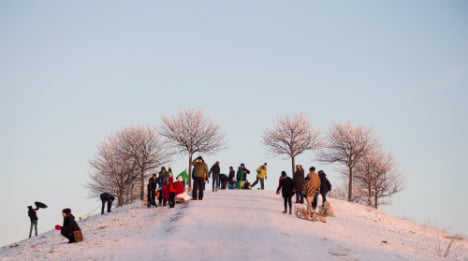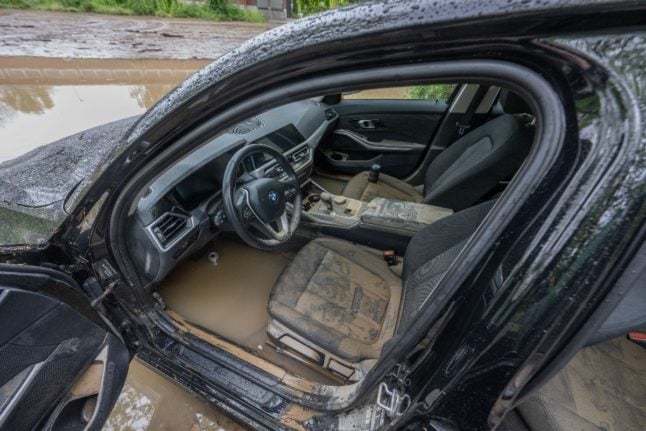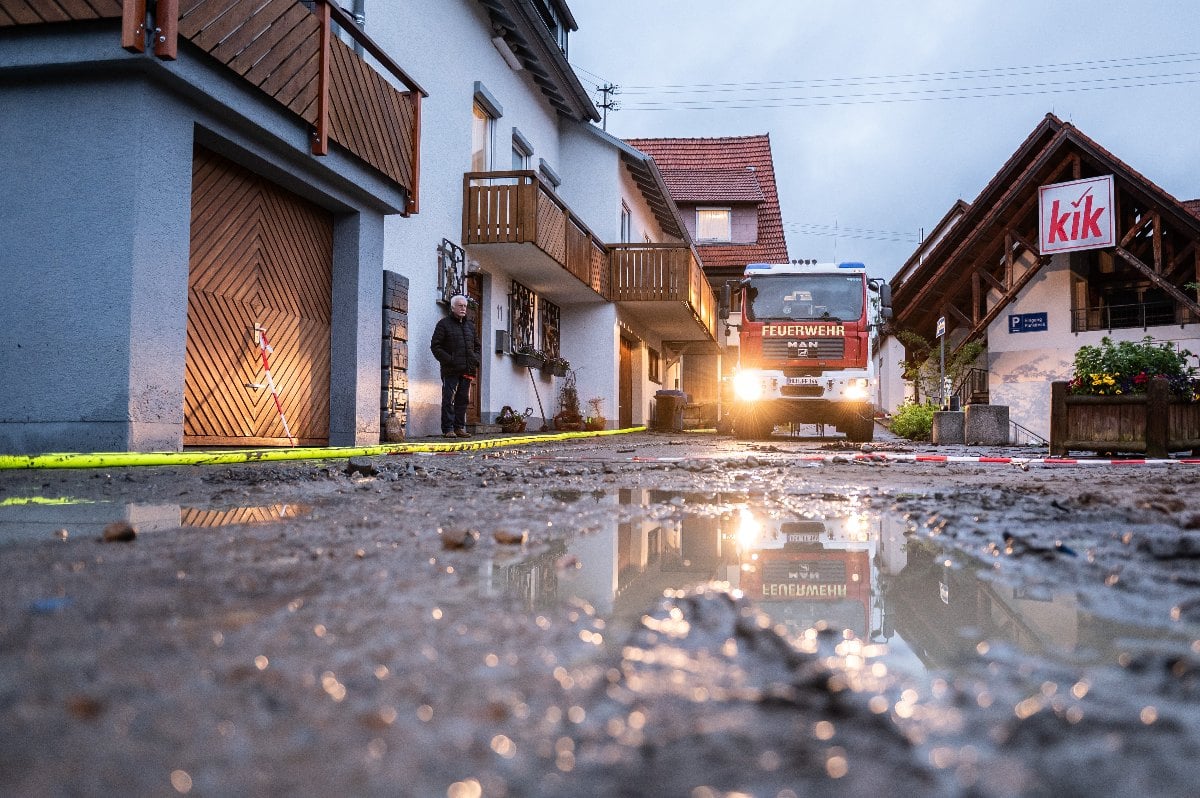The summer is now but a distant memory, so it's time to shake off those early winter blues, and embrace the gloom. There are few places in the world that do winter better than Germany. So, don't just tolerate it, enjoy it!
Here are eight ways to help you get the most out of this year's cold months:
1. Make sure you drink Glühwein
 Glühwein with spices and orange. Photo: DPA
Glühwein with spices and orange. Photo: DPA
Hot drinks are essential in the winter, and coffee will help you to keep going before lunch. But since we’re now in November, once you're out of the office it’s time for Glühwein.
Glühwein (literally “glowing wine”) is most commonly known as mulled wine in English, and is the perfect warming accompaniment to the winter months.
Normally mulled with a mixture of festive spices, such as cinnamon and cloves, and often served with orange or honey, you’ll find this all over the nation as we get closer to Christmas.
And, if Glühwein doesn’t sound like it's up your Strasse, then try out some of these other Christmas market drinks.
2. Stock up your winter wardrobe at one of Germany’s many flea markets
Berlin is famous for its flea markets – or Flohmärkte – but in fact there are many to choose from across Germany.
Have you stepped outside yet, and wished you had a thicker winter jacket, but don’t want to spend a small fortune? Then a German flea market may well be your answer.
From vintage jackets to end-of-line items, you may well find just the fashion piece for you, as long as you don’t mind a bit of a hunt. At flea markets, that's part of the fun.
For more information about flea markets across Germany, check out this guide.
3. Get the sled out, and maybe even the ice skates
 Families tobogganing in Lower Saxony last January. Photo: DPA
Families tobogganing in Lower Saxony last January. Photo: DPA
As we previously reported, even the south has already seen its first flakes fall for the season. So, there’s no better way for all ages to enjoy the winter than to get out with a toboggan and find a snowy slope.
And for those not satisfied by a park or a field, why not head down and try out Germany’s highest toboggan run on the Zugspitze? There are even two chairlifts to get you to the top.
If you’re feeling even more athletic, take advantage of the array of ice rinks across the country. The Indoo Eisarena in Hamburg is the largest ice rink in Germany at 1,400 square metres.
4. Don't forget the importance of vitamin D
 Walkers enjoying the winter sun near Garmisch-Partenkirchen, Bavaria. Photo: DPA
Walkers enjoying the winter sun near Garmisch-Partenkirchen, Bavaria. Photo: DPA
Make sure to keep your vitamin D levels up through the winter, as the days get shorter and shorter. You should try to get as much exposure to sunlight as possible, but if it's not enough, you can always take extra supplements.
Vitamin D helps build strong bones, regulate your neuromuscular system, and give your skin that lively glow (Glühwein may also help with this).
Check out this map of Germany to see which state gets the most sunshine in the winter months to see whether you should be making some weekend trips to different parts of the country.
5. Or you could get a light lamp
Fluorescent light boxes or lamps replicate sunshine through white or blue light, and can be placed in your home or workspace to emit fluorescent light at over 10,000 lux (unit of light). That's ten times the intensity of sunlight on the average overcast day.
Users' reactions to these lamps have been so positive that light boxes are used as an antidepressant medication for Seasonal Affective Disorder (SAD). Depending on the type of lamp used, 20 to 90 minutes of exposure a day can help to treat SAD, according to SAD.org.uk.
6. Visit one of Germany's indoor pools, baths – or an 'island resort'
Inherited from the Romans, Germany has a wealth of public baths, as well as other indoor swimming pools and aqua parks.
In fact, Bavaria is home to the biggest spa in the world: the “Therme Erding”. The vast complex includes wellness spas, saunas, kid’s areas, and more. An aquatic paradise in the summer, the huge indoor wave lagoon with over 300 palm trees will also transport you out of the chilly winter.
For those wanting something a bit more Romanesque, the beautiful Stadtbad (city baths) in the Neukölln district of Berlin are housed in a traditional bathing hall.
But if you're really missing the summery, beachy experience, you can escape to the Tropical Islands Resort in Brandenburg. Based inside a former airship hangar, this theme park offers a rainforest, water slides and hot air balloon rides.
SEE ALSO: Unmissable events in Germany this November
7. Try out some German baking
 Reindeer-shaped Lebkuchen being decorated in Bremen. Photo: DPA
Reindeer-shaped Lebkuchen being decorated in Bremen. Photo: DPA
Why not use the long evenings to improve your baking skills? Germany is famous for its wintry pastries, and the next few months are the perfect time to try to become a star baker.
Some delicious German staples include Lebkuchen – a German ginger bread – and Stollen, which is a breadloaf filled with dried fruit and often marzipan, dusted with icing sugar.
Check out these photos of ten German cookies you should try at home.
8. Embrace the Gemütlichkeit
 An roaring open fire: what could be more gemütlich? Photo: Pixabay
An roaring open fire: what could be more gemütlich? Photo: Pixabay
Finally, it’s all important to embrace the very German love for winter, perfectly summed up in one untranslatable German word: “Gemütlichkeit”.
Yes, it means cosiness. But it also means so much more, capturing the the inner feeling of warmth and contentedness.
The word instantly conjures up a scene including a candle-lit room, comfy sofa, cup of something hot, and someone else to cuddle up with. Or, just as easily, it could mean a meander through a glowing town centre where waffles and candied almonds are on sale.
As cold and bitter as the winter can be, it is also fun and beautiful. And there are few better places to be for it than Germany.
By Alexander Johnstone




 Please whitelist us to continue reading.
Please whitelist us to continue reading.
Member comments